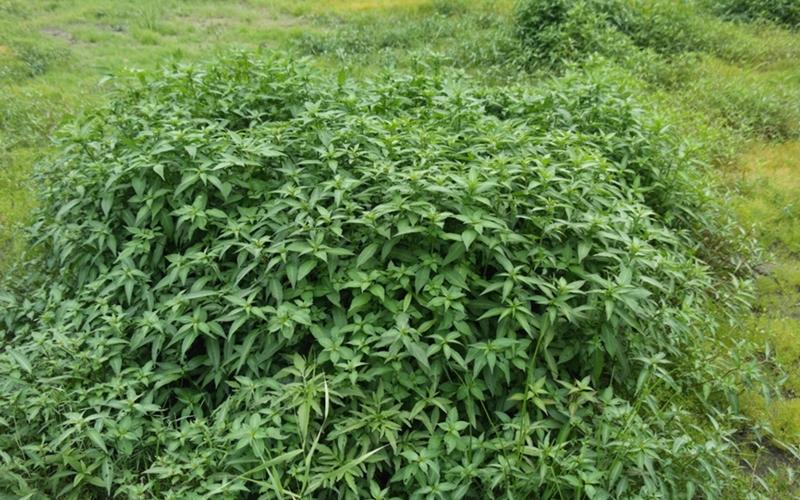Information Center
- Main page
- Information Center
- Government News
Government News
- Source
- korea.net
- Date
- 2024.11.28

A domestic research team has found that the native freshwater plant swamp dragon (Ludwigia epilobioides) hinders the proliferation of colorectal cancer cells. (Korea Biodiversity Information System)
By Kim Seon Ah
The native freshwater plant swamp dragon (Ludwigia epilobioides) has been shown to inhibit the proliferation of colorectal cancer cells.
The Nakdonggang National Institute of Biological Resources in Sangju, Gyeongsangbuk-do Province, on Nov. 27 said it found that extract from the cell mass of the plant's needles hindered the cancerous cells from multiplying.
Showing a preventive effect, the cell survival rate was 50.9% when the extract was applied to the cancerous cells, or half the 100% of the untreated cell group.
The extract is presumed to have raised the manifestation of anticancer proteins (p53, NAG-1) that stimulate the death of cancerous cells.
A member of the epilobium (onagraceae) family, the swamp dragon is a type of annual grass that grows in moist places around streams or rivers.
Since last year, the institute has researched the extract as part of its study on growing useful freshwater plants through tissue culture technology.
Through the research results, the institute on Nov. 19 applied for a patent for an anticancer composition that it made containing the extract.
sofiakim218@korea.kr